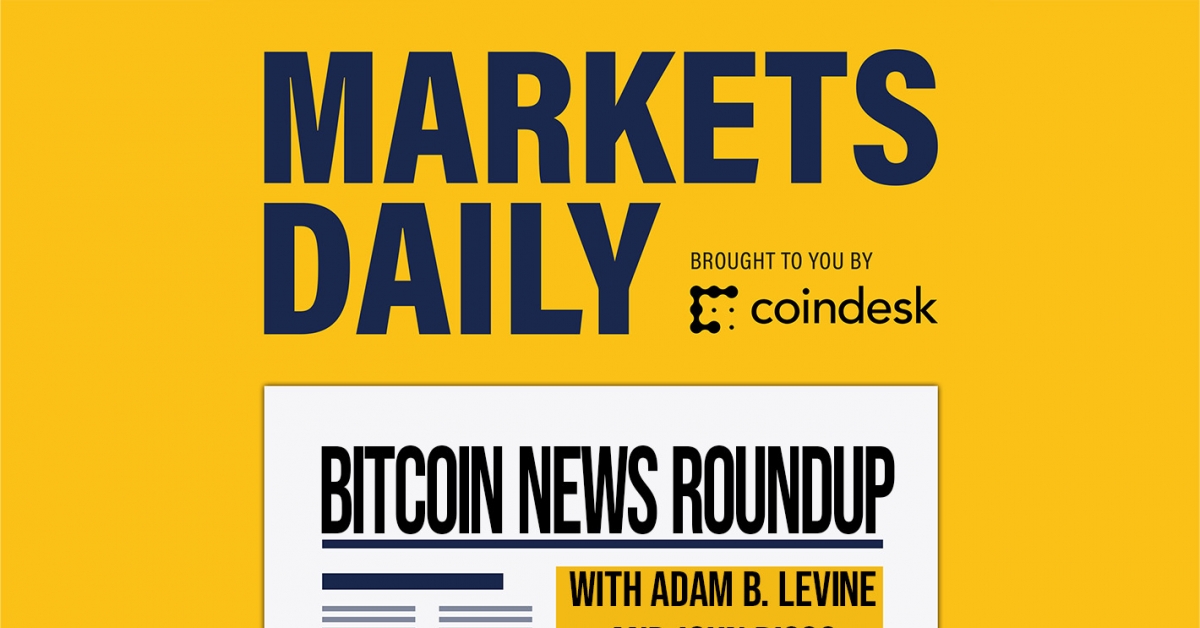Social Media App MeWe to Bring Frequency Blockchain’s Self-Sovereign Identity to Its 20M Users
Join the most important conversation in crypto and Web3 taking place in Austin, Texas, April 26-28.
:format(jpg)/www.coindesk.com/resizer/r4hCNh4zR8o4AxiOYIgV0l2Wigc=/arc-photo-coindesk/arc2-prod/public/QPY362MKDVA77CB4EHZRXW2KZM.jpeg)
Eliza Gkritsi is CoinDesk’s crypto mining reporter based in Asia.
Join the most important conversation in crypto and Web3 taking place in Austin, Texas, April 26-28.
AUSTIN, Texas — Social networking app MeWe is adopting the Frequency blockchain, built on Polkadot, to bring self-sovereign blockchain-based identities to its 20 million users, the MeWe team announced at Consensus 2023 here on Wednesday.
The integration will allow MeWe’s users to take control of their identity data and act as a foundation for controlling the data they have on social networks, the blockchain firm said.
Social networks create the so-called social graph to map the interconnection of relationships between people, things and interests. This key information mostly remains in the hands of big tech companies, and it is often used to cater advertisements to specific users. Think of how Spotify lets you see what your friends are listening to and suggests music to you.
At a panel at Consesus 2023, Braxton Woodham, president of Amplica Labs, a key contributor to the Frequency blockchain, said that “we need to pull that power back” from these private entities, and the teams are currently focused in making the whole web socially aware.
The Frequency blockchain creates a “social identity” that enables a user to be on the social graph, and which people can use across applications that sign onto this vision of Web3. This work is envisioned as a layer that permeates the web as key infrastructure. Users own their identities and control their privacy settings on different applications, Frequency said.
Frequency is a parachain of the Polkadot blockchain, meaning it sets its own rules and follows its own logic but is compatible with the main Polkadot chain as well as other parachains. Parachains pay a comprehensive lease to Polkadot, often with funds gathered from their communities, instead of a fee for each block. This boosts the system’s scalability and stability, according to Frequency. As such, the Frequency blockchain can handle a lot of throughput, needed for social media applications.
MeWe users will be able to opt in to the Frequency blockchain adoption. The social media app was founded in 2012 as a social network with a focus on privacy.
The Frequency blockchain evolved out of work of the Decentralized Social Networking Protocol (DSNP), another technology that enables applications to deliver Web3 features to their users. DSNP was supported by Project Liberty, a non-profit funded by real estate billionaire Frank McCourt to disrupt social media.
In September 2022, McCourt Global, the billionaire’s investment firm also led a $27 million investment round into MeWe. Amplica Labs, the key Frequency contributor and DSNP creator, is part of McCourt Global.
Edited by Sheldon Reback and Oliver Knight.
DISCLOSURE
Please note that our
privacy policy,
terms of use,
cookies,
and
do not sell my personal information
has been updated
.
The leader in news and information on cryptocurrency, digital assets and the future of money, CoinDesk is a media outlet that strives for the highest journalistic standards and abides by a
strict set of editorial policies.
CoinDesk is an independent operating subsidiary of
Digital Currency Group,
which invests in
cryptocurrencies
and blockchain
startups.
As part of their compensation, certain CoinDesk employees, including editorial employees, may receive exposure to DCG equity in the form of
stock appreciation rights,
which vest over a multi-year period. CoinDesk journalists are not allowed to purchase stock outright in DCG
.
:format(jpg)/www.coindesk.com/resizer/r4hCNh4zR8o4AxiOYIgV0l2Wigc=/arc-photo-coindesk/arc2-prod/public/QPY362MKDVA77CB4EHZRXW2KZM.jpeg)
Eliza Gkritsi is CoinDesk’s crypto mining reporter based in Asia.
Learn more about Consensus 2023, CoinDesk’s longest-running and most influential event that brings together all sides of crypto, blockchain and Web3. Head to consensus.coindesk.com to register and buy your pass now.
:format(jpg)/www.coindesk.com/resizer/r4hCNh4zR8o4AxiOYIgV0l2Wigc=/arc-photo-coindesk/arc2-prod/public/QPY362MKDVA77CB4EHZRXW2KZM.jpeg)
Eliza Gkritsi is CoinDesk’s crypto mining reporter based in Asia.









